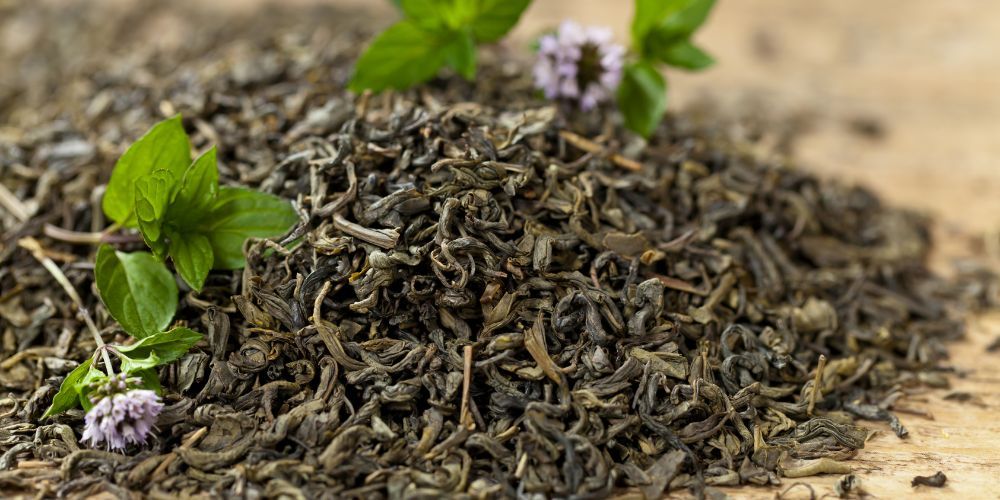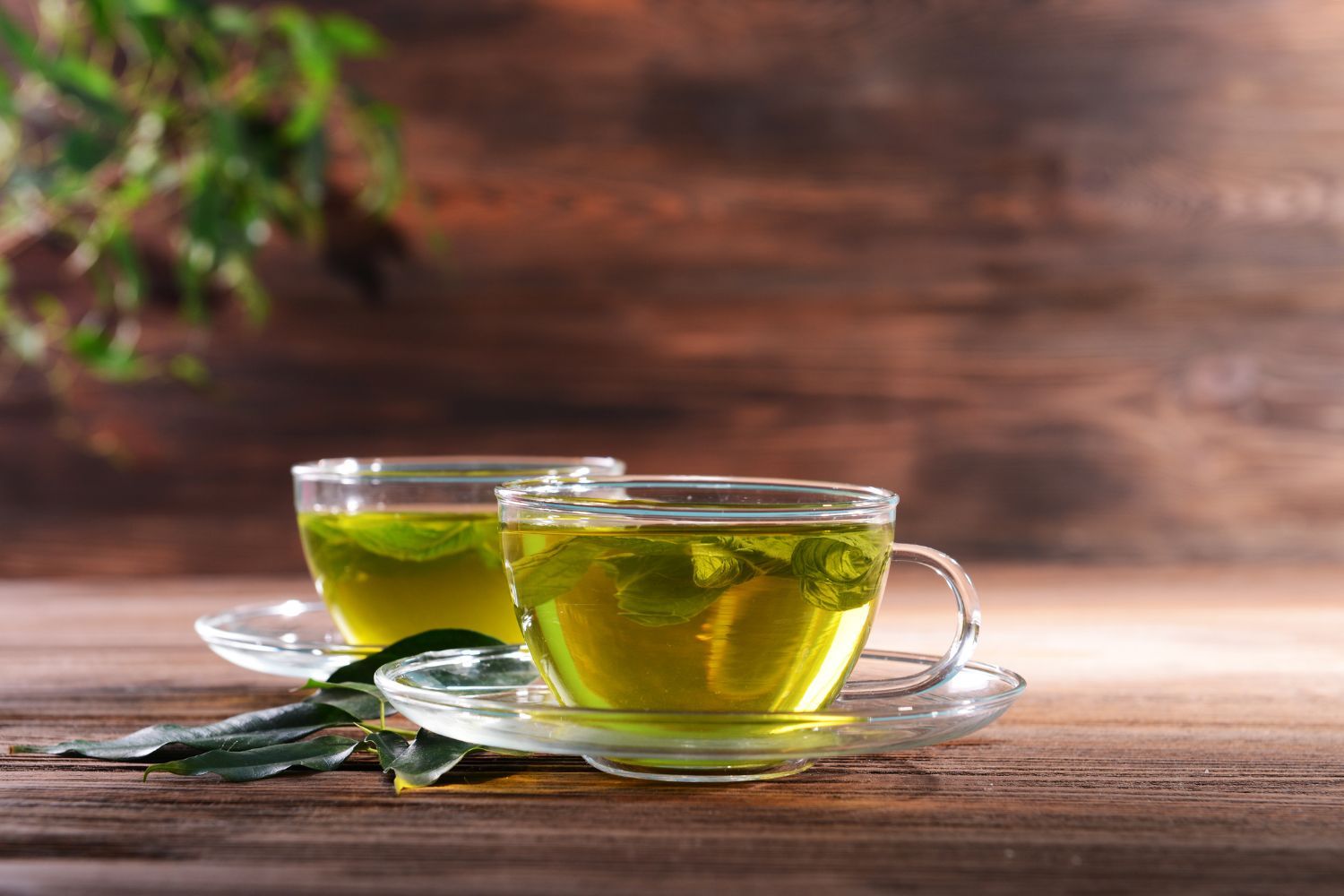7 Health Benefits of Green Tea You Need to Know

Green tea is a centuries-old beverage that is beloved around the world.
It is a natural source of antioxidants, vitamins, minerals, and other beneficial compounds.
In recent years, green tea has become increasingly popular, particularly among health-conscious individuals seeking natural ways to stay healthy.
In this comprehensive guide, we will explore the many benefits of green tea, from its anti-aging effects to its potential for weight loss and disease prevention.
We will also discuss why green tea is an essential part of a healthy lifestyle and how to make sure you get the most out of it.
So, let’s dive in and explore the many benefits of green tea!
What is Green Tea?
Green tea is a type of tea made from the leaves of the Camellia sinensis plant.
The tea leaves are processed in a special way, which prevents them from oxidizing, allowing them to retain their unique flavor and beneficial compounds.

The first step is withering, which involves laying the freshly picked tea leaves out to dry in the sun or in a warm, well-ventilated room. This allows some of the moisture to evaporate and softens the leaves, making them more pliable for the next step.
The second step is fixation, which involves heating the tea leaves to stop the oxidation process. This is typically done by pan-firing the leaves in a large wok or steaming them. Fixation helps preserve the natural green color of the leaves and prevents them from turning brown or black.
The third step is rolling, which involves shaping the tea leaves into thin, twisted strips. This is typically done by hand or with a machine that gently rolls and twists the leaves.
The final step is drying, which involves removing any remaining moisture from the tea leaves. This is typically done by firing them in an oven or a large basket over a charcoal fire. The dried leaves are then sorted and packaged for distribution.
The exact processing methods can vary depending on the type of green tea being produced and the region where it is grown.
The Benefits of Green Tea
Green tea is packed with beneficial compounds such as antioxidants, minerals, and vitamins.
These compounds can provide numerous health benefits, from boosting the immune system to warding off disease and protecting the skin.
Let’s take a look at some of the most impressive benefits of green tea.
Green tea is one of the healthiest beverages on the planet. It is rich in antioxidants and provides numerous health benefits.
It is low in calories and contains no sugar, which makes it an excellent choice for individuals trying to lose weight.
Green tea is made from the leaves of the Camellia sinensis plant, which is native to East Asia.
It has been consumed for centuries in various forms, including loose-leaf tea, tea bags, and powder.
The nutritional profile of green tea is highly varied and complex.
It is rich in polyphenols, including catechins and flavonoids, which are powerful antioxidants.
It also contains small amounts of minerals, such as calcium, magnesium, phosphorus, iron, zinc, and manganese.
Green tea is rich in the catechin EGCG (epigallocatechin gallate), which is a powerful antioxidant.
It helps protect cells from free radical damage, which can cause premature aging. In addition to EGCG, green tea also contains other catechins such as ECG (epicatechin gallate) and EC (epicatechin).
The caffeine content of green tea varies depending on the type and preparation. It usually contains between 30 and 50 mg of caffeine per 8-ounce cup, which is less than a cup of coffee. Green tea may help boost energy levels and can improve focus and alertness.
Green tea also contains an amino acid called L-theanine, which has a calming effect and can reduce stress and anxiety.
It promotes a feeling of relaxation without sedative effects.
Green tea is a great source of hydration because it contains no calories and no sugar.
It is also rich in antioxidants and has been linked to numerous health benefits, such as improved digestion, increased metabolism, reduced blood sugar, and a lower risk of chronic diseases.
In terms of its nutritional profile, green tea is a powerhouse of essential vitamins and minerals.
One cup of green tea contains 2% of the recommended daily value of calcium, 11% of the recommended daily value of magnesium, 8% of the recommended daily value of phosphorus, 5% of the recommended daily value of potassium, 9% of the recommended daily value of zinc, and 12% of the recommended daily value of manganese.
It is also a good source of vitamins C, E, B1, B2, and K.
Overall, green tea is a very healthy beverage with many nutritional benefits.
Its high levels of antioxidants help protect cells from damage and can reduce the risk of some chronic diseases.
Its low calorie content and lack of sugar make it an excellent choice for those looking to lose weight.
Its high levels of vitamins and minerals and its calming effects from the L-theanine make it an excellent beverage for overall health and well-being.

1. Anti-Aging Effects
One of the most impressive benefits of green tea is its ability to slow down the aging process. This is due to the presence of powerful antioxidants called catechins, which have been shown to reduce inflammation and fight off harmful free radicals.
If you consume green tea regularly, you may help your body fight off free radicals and protect your skin from premature aging.
2. Weight Loss
Green tea is often touted as a weight loss aid, and there’s some truth to this claim.
The catechins in green tea have been shown to boost the metabolism, which can lead to faster fat burning and weight loss.
Additionally, consuming green tea between meals can help you feel fuller for longer, making it easier to stick to a healthy diet.
3. Improved Brain Function
Studies have found that green tea may help reduce of anxiety, increase memory and attention, and improve brain function (e.g. activation of working memory seen in functional MRI).
The caffeine in green tea can also help improve your mental focus and cognitive abilities.
Caffeine has been shown to increase alertness, reduce fatigue, and improve memory and concentration.
4. Disease Prevention
The antioxidants in green tea can help to fight off disease-causing free radicals, which can improve well-being and increase immune function.
Additionally, green tea has been linked to lower blood pressure, which can help to reduce the risk of stroke and other cardiovascular diseases.
5. Improved Digestion
Green tea can also help to improve your digestion, as it’s been linked to increased production of stomach acid.
This can help to break down food more effectively and reduce symptoms of indigestion. Additionally, the catechins in green tea can help to fight off bacteria in the gut, which can help to reduce the risk of food poisoning.
6. Stronger Bones in Women
Green tea is also a great source of minerals such as magnesium and manganese, which can help to strengthen bones and reduce the risk of osteoporosis in women particularly but not in men.
Studies have also suggested that green tea can help to prevent bone loss, making it an important beverage for women who are looking to stay healthy as they age.
7. Improved Cardiovascular Health
Green tea can also help to improve your cardiovascular health, as it’s packed with beneficial compounds. These compounds can help to reduce cholesterol levels and decrease the risk of heart attack and stroke.
Additionally, green tea can help reduce inflammation in the body, which can help to improve blood flow and reduce the risk of heart disease.

Making the Most of Green Tea
While green tea has many potential benefits, it’s important to make sure you’re making the most of it. Here are a few tips to ensure you’re getting the most out of green tea:
Drink it in moderation. While green tea can provide many benefits, it’s best to stick to one cup per day to avoid over-consuming caffeine.-
Brew it correctly. Green tea should be brewed in water that is between 160-180 degrees Fahrenheit (70-80 degrees Celcius) for the best flavor and most beneficial compounds.
Choose organic. To get the most out of green tea, make sure to choose organic varieties, as they will be free from pesticides and other harmful chemicals.
Add milk. For a delicious twist, try adding a splash of milk or cream to your green tea.
Store it properly. Keep your green tea in a cool, dark place to avoid oxidation and keep it fresh for longer.
Final Thoughts
Green tea is a centuries-old beverage that is beloved around the world.
It’s packed with beneficial compounds that can provide numerous health benefits, from anti-aging effects to weight loss and disease prevention.
By drinking green tea regularly and making sure you’re making the most of it, you can enjoy all of these impressive benefits.
So, why not give green tea a try and get the most out of this natural beverage?
References:
Xing L, Zhang H, Qi R, Tsao R, Mine Y. Recent Advances in the Understanding of the Health Benefits and Molecular Mechanisms Associated with Green Tea Polyphenols. J Agric Food Chem. 2019 Jan 30;67(4):1029-1043. doi: 10.1021/acs.jafc.8b06146. Epub 2019 Jan 17. PMID: 30653316.
Prasanth MI, Sivamaruthi BS, Chaiyasut C, Tencomnao T. A Review of the Role of Green Tea (Camellia sinensis) in Antiphotoaging, Stress Resistance, Neuroprotection, and Autophagy. Nutrients. 2019 Feb 23;11(2):474. doi: 10.3390/nu11020474. PMID: 30813433; PMCID: PMC6412948.
Maruyama K, Iso H, Sasaki S, Fukino Y. The Association between Concentrations of Green Tea and Blood Glucose Levels. J Clin Biochem Nutr. 2009 Jan;44(1):41-5. doi: 10.3164/jcbn.08-13. Epub 2008 Dec 27. PMID: 19177186; PMCID: PMC2613497.
Mancini E, Beglinger C, Drewe J, Zanchi D, Lang UE, Borgwardt S. Green tea effects on cognition, mood and human brain function: A systematic review. Phytomedicine. 2017 Oct 15;34:26-37. doi: 10.1016/j.phymed.2017.07.008. Epub 2017 Jul 27. PMID: 28899506.
Weisburger JH. Prevention of coronary heart disease and cancer by tea, a review. Environ Health Prev Med. 2003 Jan;7(6):283-8. doi: 10.1007/BF02908887. PMID: 21432397; PMCID: PMC2723467.
Li X, Qiao Y, Yu C, Guo Y, Bian Z, Yang L, Chen Y, Yan S, Xie X, Huang D, Chen J, Chen Z, Lv J, Li L; China Kadoorie Biobank Collaborative Group. Tea consumption and bone health in Chinese adults: a population-based study. Osteoporos Int. 2019 Feb;30(2):333-341. doi: 10.1007/s00198-018-4767-3. Epub 2018 Nov 15. PMID: 30443748; PMCID: PMC6449318.


